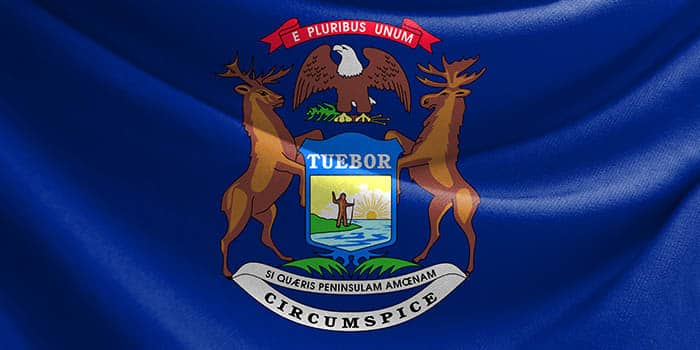- Casino
- By State
- Alabama
- Alaska
- Arizona
- Arkansas
- California
- Colorado
- Connecticut
- Delaware
- Georgia
- Florida
- Hawaii
- Idaho
- Illinois
- Indiana
- Iowa
- Kansas
- Kentucky
- Louisiana
- Maine
- Massachusetts
- Maryland
- Michigan
- Minnesota
- Mississippi
- Missouri
- Montana
- Nebraska
- Nevada
- New Hampshire
- New Jersey
- New Mexico
- New York
- North Carolina
- North Dakota
- Ohio
- Oklahoma
- Oregon
- Pennsylvania
- Rhode Island
- South Carolina
- South Dakota
- Tennessee
- Texas
- Utah
- Vermont
- Virginia
- Washington
- West Virginia
- Wisconsin
- Wyoming
- By State
- Slots
- Poker
- Sports
- Esports
Industry Heavyweights Sit Down Together to Talk about UK’s Gambling Future

The UK gambling market is fast-evolving, benefiting from a plethora of highly-competitive and innovative local companies as well as regulatory changes. We spoke with Andreas Koeberl, CEO, BetGames (AK), Steven Spartinos, co-CEO, Kiron (SS), Fiona Hickey, director of new business and markets, Push Gaming (FH), and Dinos Stranomitis, COO and co-founder of Altenar (DS) to find out what to expect and how current events could impact the future of gambling in the United Kingdom. Our guests talk about growth opportunities, current challenges, and the general outlook for the market.
To get the ball rolling, what’s your current outlook for the UK market, and do you expect it to retain the crown of Europe’s biggest over the coming decade?
(SS) As one of the most established markets globally, betting has secured its place as a favorite pastime within the UK, and we believe it will remain steadfast in its position. There’s a government review pending (already delayed) and if the tighter restrictions that are predicted materialize it will challenge providers and operators to not only improve their offering but also ensure they are above board and compliant.
Beyond this, the UK market is renowned as one which embraces new technologies and trends earlier than most, and with the addition of e-sports betting and live sporting events back in full swing, the market is projected to grow at an accelerated pace. Retail has also returned to pre-Covid numbers as restrictions have eased significantly and the UK’s traditional form of betting in retail alongside the ever-popular online sector, will continue to thrive.
(AK) The UK remains an important market. It is complex and one which demands that stakeholders have done their homework, yet, if you get your products working there, you are well set up for most of the mature tier-one European markets and their players. It may sound bold, but I would project Germany will overtake the UK and become number one in the next 3-5 years.
(FH) The UK exemplifies issues around regulation that affect the industry as a whole. Regulatory measures that protect customers’ safety are welcomed by all. However, if the overall customer experience is hindered by tightening regulations they may choose to go to unregulated sites where they may not face these barriers. As a global industry, we of course want to provide both safe and engaging experiences for our customers.
I believe the UK will continue to be among the biggest gambling markets in Europe, but it will be interesting to see how that starts to evolve with a discussion of tighter restrictions. Creating entertaining experiences for players in order to keep audiences engaged while working with these regulations is key.
(DS) The UK is one of the largest markets, as you say, and for this reason, we predict that it will continue to grow as a new generation of gamers is beginning to emerge, bringing with them a different demand for entertainment, which we as providers must map out and explore the new trends that emerge.
Though this can be said for many markets across Europe, where some regions have the potential to rise to the same level of enormity, like the Netherlands for example. In my view, the UK offers the global market a fantastically rich melting point where the industry is able to develop and grow. For this reason, the UK market is a great driver of expansion into new types of sports betting like Esports that will continue to boost the market’s growth alongside more traditional iGaming.
Given the diverse range of gaming verticals taking part in our roundtable, what potential do you see for your vertical over other competing sectors?
(AK) Live gaming continues to be a booming vertical and has evolved at a respectable rate over the past few years, a growth driven by simple and straightforward titles and game show-style content, which have proven themselves as great conversion tools for casual players. This is crucial, especially in the UK, as most operators have strived to reduce their dependency on high rollers due to the ever-tightening regulatory framework. Therefore, our product remains the go-to vertical and with it a significant pressure to maintain innovation.
(SS) Virtual sports betting has grown exponentially in the last two years and now comfortably sits in its own vertical, rather than simply an accessory to living sports. Kiron has one of the largest game portfolios in the industry, offering more choice and selection of game styles for diverse audiences.
Virtual sports events are available 24/7 and offer fast-paced, high-frequency entertainment whilst delivering all the familiar betting markets. Also, in keeping with modern entertainment standards, our in-house animation studio is among the best in the world and allows us to ensure our presentation is of the highest quality – in a world of high-end, powerful devices, putting out sharp and fast-moving content, anything else just wouldn’t suffice.
(FH) For slots – it must be all about innovation and pivoting towards creating experiences that are entertainment-led. It isn’t about gaining a customer and getting them to spend their deposit as quickly as possible. It’s true for us about bringing in customers that are going to spend years with our products. This is achievable via the vast amount of diverse, fun, and appealing titles we release that are unique to our vertical. If we look to other verticals like bingo, it has always been community-led and we are seeing this being integrated into many other verticals driving innovation. From a provider standpoint, our games attract players and entertain them over a prolonged period and this distinction in our vertical is what makes us stand out, and our games stand the test of time with our player base.
(DS) For us, it’s no secret that sports betting is the world’s most popular vertical and dominates the majority of markets, as people simply love sports and the entertainment that comes with that, whether it be betting or enjoying the live-action.
This is our specialization at Altenar, and for this reason, we offer a unique proposition for those looking to enter that space because it’s what we do best. It’s as simple as that, we know sportsbooks, betting, and how the gamers, punters, and patrons enjoy experiencing land-based and iGaming content, especially sports-based content.
In my view, sports betting is an almost evergreen arena for the iGaming world because, as it grows into sub-verticals like Esports, we see the potential for an endless amount of imaginative gaming content or replicas of current sports betting like virtual football or basketball. This is going to be a very strong growth area for the industry, as the bettor and operator aren’t reliant on in-person events taking place – which means that betting markets can be easily scaled.
It has been argued that UK sports betting fans have been traditionally hard to cross-sell to beyond the likes of poker and live casinos – do you see that changing with the new generation of players coming online?
(SS) I do. Millennials and Gen Z increasingly look for high-intensity play, across gaming verticals and virtual sports fulfill both of these aspects. The younger generation players that are now discovering our products are more pre-disposed to the style of play that virtual sport offers.
Cross-selling, consequently, has become more prevalent, amplified by the impact of Covid. Virtuals achieve that across demographics, offering more traditional betting markets but with a modern presentation and turnaround. The key is that they are available when there are no live sporting events and present a fast-paced, always-on gaming experience. Omni-channel solutions are also available, meeting a variety of betting habits and preferred betting platforms.
(DS) This is changing as the scope and face of player demographics evolve, with new and emerging trends that demand many different types of betting markets – which is the same for iGaming. From what we’ve seen, however, it seems that the next-gen demographic is leaning heavily towards sports betting and Esports – which is fast-becoming mainstream, rather than a growing niche.
Looking at other verticals – poker and live casino will always be popular, but it might become less so as the times change, and newer gamers are shaping the form that betting content takes. With a fantastic team and a hugely diverse range of products, Altenar is ready for these changes, and it’s certainly something that the iGaming world appears ready for as well.
(AK) Upcoming generations pose completely different challenges to the industry. We all compete for the time of players and the values, expectations, and player behavior of Gen Z are fundamentally different from what the industry currently caters to.
I think we need to work closely with regulators and involve them in the innovation process, this will allow us to come up with radical content inventions. Gambling and other forms of entertainment need to merge to attract them – simply pouring in more marketing money or using machine learning for targeting will not solve the lack of content innovation.
(FH) It isn’t as easy as looking at a player as only using one type of betting vertical. A sports bettor, a casino player, a poker fan, or a bingo enthusiast are obviously very different types of players. Operators must provide enough products to attract a wider range of players. They must endeavor to have the right mix of slots within their slots portfolio or enough live casino games with varying amounts of minimum and maximum stakes to appeal to an array of customers. Cross-selling opportunities aren’t just reliant on a new generation of players but on providing customers with more choice than ever, as within each vertical there are many segments of players.
The UK is arguably far less restricted as a market compared to the likes of Italy, Spain, and Germany which have far tighter regulations – do you see the expected UK restrictions to take a similar direction?
(DS) When we’re looking at something like regulation, I believe this is entirely dependent on a country-by-country basis – and just because one goes one way doesn’t mean another won’t go a different way entirely. From my experience, it’s rare for markets to follow suit because bettors are different around the world, and thus respond differently to changes in betting format.
Even if the UK market were to tighten regulation, the question would be to the degree to which they do it, and for now, it seems like it might not be as restrictive as Italy’s, for instance.
However, we don’t foresee the UK market becoming overtly restrictive anytime soon, as betting and gaming in the UK is a long-standing social tradition that transcends generations – which we can see with everything from centuries of horse racing to the staple fruit machine you’ll find in any
(AK) In general, regulation in mature markets moves in a similar direction. Regulation isn’t a bad thing – we welcome rules, as long as they are fair and transparent. The more aggressive the restrictions, the bigger the risk to undermine the actual goal behind the regulation, which is of course player protection! If we’re subjected to unreasonably tight restrictions, black markets will thrive – leading to a complete absence of player protection, zero tax revenue, and the removal of support for sports. It’s also important to bear in mind that measures like advertising bans are mainly benefiting established, well-known brands and may lead to unfair competition. Operators and suppliers will be busy adapting their platforms to comply with regulations while innovation will suffer.
I think it is pretty clear that UK legislation will become tighter and the market more restricted, yet I don’t expect a similar mess on the same front in Germany. I think German policymakers will learn a lot during the execution of their duties and will evolve more flexibly step by step. The UK is more mature and can’t be seen to be going in the opposite direction.
(SS) In the last year alone, we have seen UK regulation become more stringent and hefty fines levied on several companies for non-compliance. As more markets move toward being regulated, you tend to see more of this. The UK will follow a similar path to other regions in Europe and while regulation and compliance are undoubtedly important, the flexibility and agility of those supplying and operating becomes ever more crucial and plays a major part in the success of the industry.
(FH) New restrictions being implemented understandably won’t make the UK a looser market and we as an industry want to have a safe ecosystem for all players. No operator or supplier is saying we want to have no regulations or changes but what we need to be mindful of is inhibiting gameplay and entertainment and therefore how a player wants to spend their time.
We fundamentally don’t want to drive them to casinos that aren’t licensed and don’t have controls in place or UKGC regulations behind them. I do think we will see tighter restrictions in line with other European countries in the UK over the coming months. It is our job to implement these and work towards developing great content for our players, that continues to deliver them the experience they are used to, and see them coming back to us time after time. I hope regulators continue to work more with operators and providers to ensure these regulations are fit for purpose and aren’t going to drive players to sites that will take advantage of them.
Related Topics:
Stoyan holds over 9 years of esports and gambling writing experience under his belt and is specifically knowledgeable about developments within the online scene. He is a great asset to the Gambling News team with his niche expertise and continual focus on providing our readers with articles that have a unique spin which differentiates us from the rest.
Must Read
Insider
May 15, 2025
Joshua Gamble: “Cross-sell is dead. What next?”

















